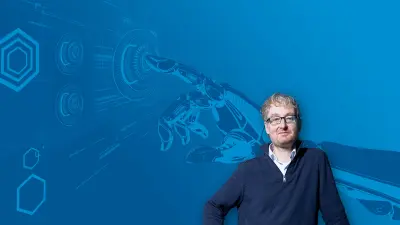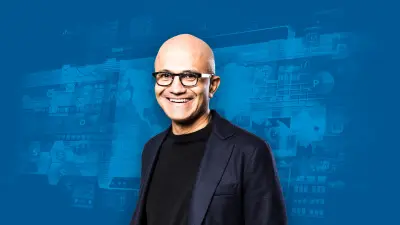Artificial intelligence — the future of work
In dialogue with the partner at the McKinsey Global Institute
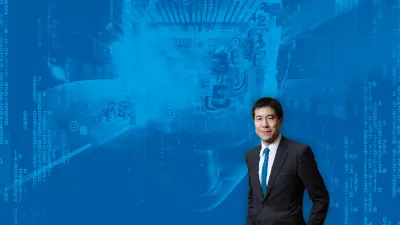
2018-05-29
Will many company employees soon be replaced by artificial intelligence? Michael Chui does not believe there will be mass unemployment due to machines — but is sure work will be reinvented.
Restructuring instead of redundancies
“What does it mean for our work?” — a question Michael Chui often hears when talk turns to his research into artificial intelligence in business life. One of his answers is, “There’s almost no part of the economy which potentially couldn’t be disrupted by AI. We are all going to have to change what we do. And so, the biggest challenge we have is not really mass unemployment.” It is going to be far more important to rethink work and restructure it.
“49 per cent of the things we do in the workplace can be automated.”
Chui, partner of the consultancy’s research department, has taken a close look at almost 900 different jobs and approximately 2,000 processes. His findings: Almost half the tasks for which people are remunerated can be automated. Not only that, everything can be done using only existing technology, from the processing of large amounts of data to a routine tax reform.
What can human beings do better than machines?
The fear that millions of jobs will disappear as a result is something Chui feels is unfounded as fewer than five per cent of the jobs are so defined that they can be completely automated. The focus is however shifting in many tasks. “Some of the things that machines find harder to do, are interacting with other people and exhibiting creativity,” says Chui. “These are some of the things that we would expect people to spend more time doing.” A lawyer will still be called a lawyer, his work however will be different – he will for example develop systems that advise instead of he himself advising people.
„Fewer than five per cent of all jobs can be completely taken over by machines.”
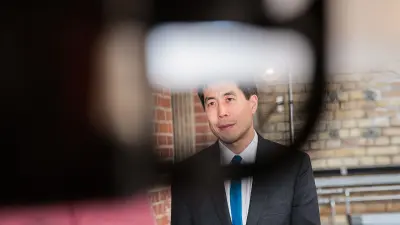
According to Chui, there are three kinds of activities that have the strongest propensity for automation. “One of them is physical activity and predictable environments. We’ve seen it in manufacturing, we’ll see it in agriculture, we’ll see it in healthcare.” The other two kinds are: “Collecting data and processing data.” Processes involved in the collection and processing of data in particular can all be automated. Such tasks are also performed by highly-qualified employees, which shows that machines can be of assistance at every hierarchical level.
Up to 375 million
People worldwide that will have to change their field of activity due to artificial intelligence in the future (source: McKinsey)
Chui sees enormous potential in artificial intelligence. “It increases the chances for every business as performance can be boosted in almost every sector.” However, according to an Adobe survey, to date only 15 per cent of the companies questioned in North America, Asia and Europe are using artificial intelligence. “Businesses first have to learn to apply the new technologies,” says Chui.
An interview with Michael Chui, partner at the McKinsey Global Institute
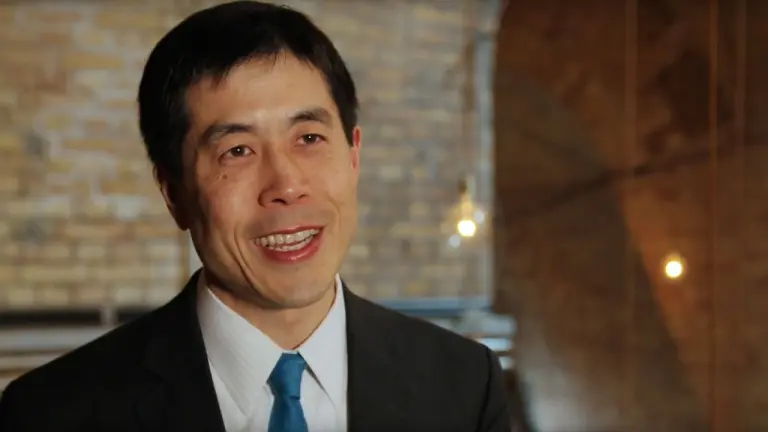
Loading the video requires your consent. If you agree by clicking on the Play icon, the video will load and data will be transmitted to Google as well as information will be accessed and stored by Google on your device. Google may be able to link these data or information with existing data.
Profile
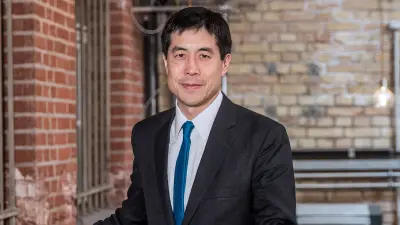
Michael Chui
McKinsey Global Institute
We are starting to see computers being able to predict what people are doing ahead of time.
Michael Chui is a partner at the McKinsey Global Institute, the research department at the consultancy, in San Francisco. He is in charge of research into the influence of new technologies and innovations in business and society.
Summary
Almost half of the work processes can be automated. However, only a small fraction of the jobs is suited to being taken over by machines. The human workers of the future will be able to concentrate on creative processes and the controlling of the artificial intelligence.
